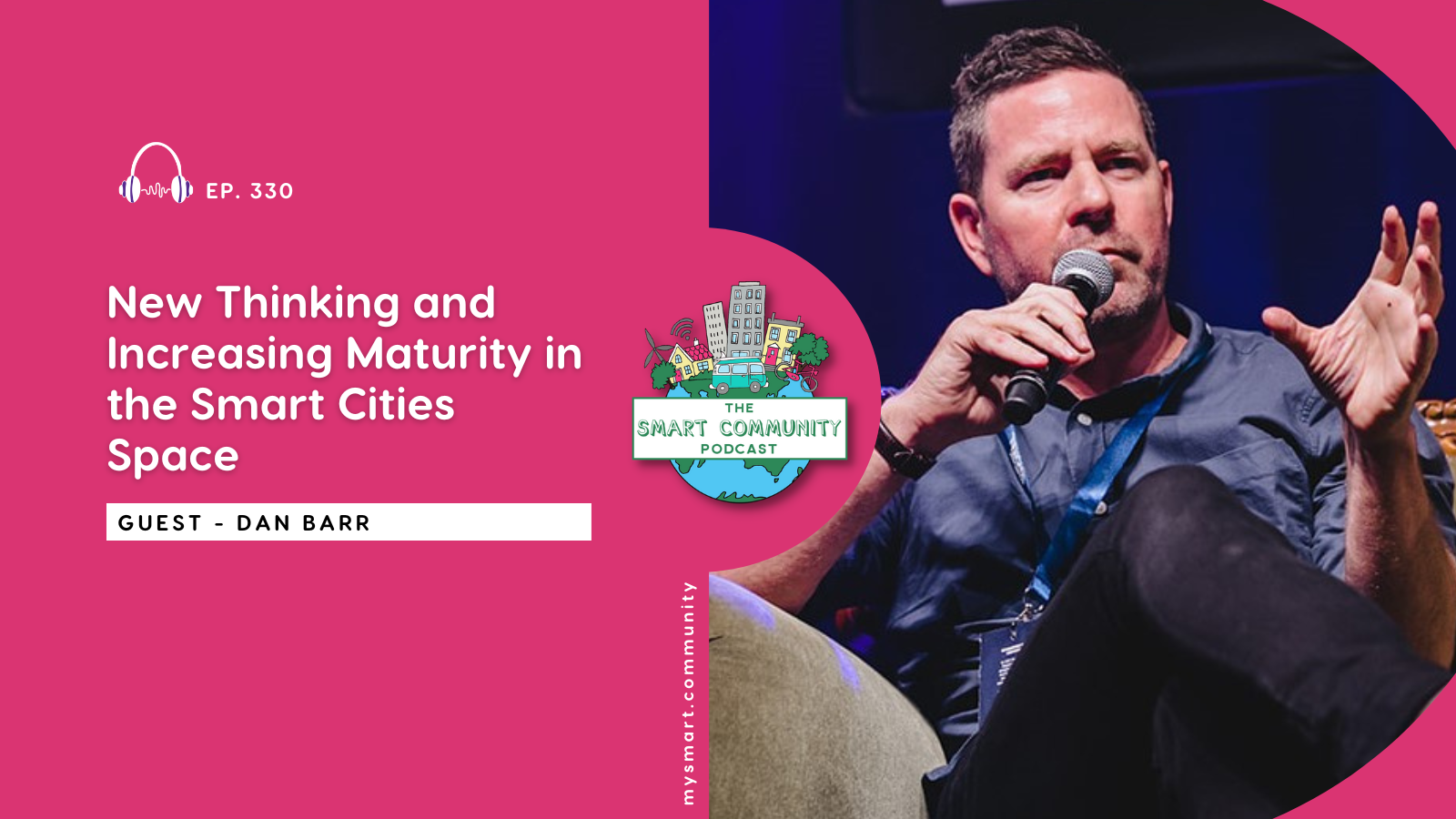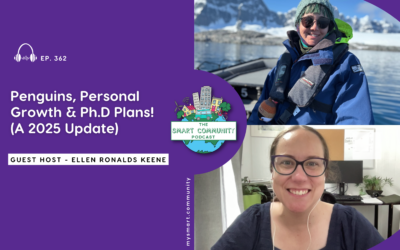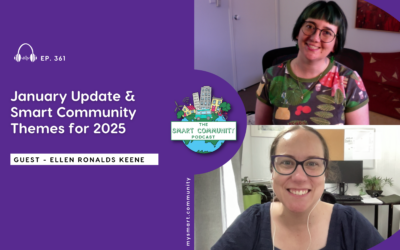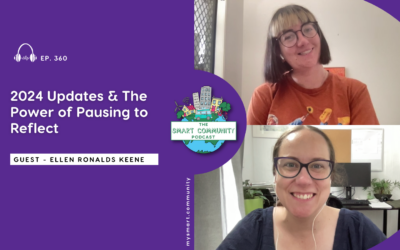Hi #SmartCommunity Friends and welcome to the first new episode of 2023! We hope you enjoyed our summer series sharing some of our favourite episodes over the preview 12-18 months. In today’s episode I have a fantastic conversation with old friend of the show, Dan Barr! Now Dan has been on the show before but it was way back in the early days, in episode 44 in 2018. Dan leads the multi-disciplinary consultancy, Better Cities Group and is a co-founder of the major event planning technology collaboration, Better Events VR. The Better Cities Group specialises in design, economics and engagement and proudly supports clients in the private, public and start-up sectors throughout the APAC region.
In this episode, Dan and I discuss how our thinking has changed on a number of topics since 2018, and how the Smart space in general has matured. We talk about the problem of unintended consequences of technology, and the tension between political ambition and commercial reality in Smart projects. Dan tells us a bit about some projects he’s working on, and he tells us what he thinks will be the big story of the next 10 years in city and urban development. We discuss why we need to get the hierarchy right between people and cars when designing our cities, and the importance of both qualitative and quantitative data, what I like to call the numbers and the stories. We finish our chat talking about the emerging trend of geopolitical factors in the Smart space. As always we hope you enjoyed listening to this episode as much as we enjoyed making it.
Listen here:
What we cover in this episode:
- Dan’s background in public health and urban design and his passion for communities
- What is a Smart Community to Dan and how the Smart space has matured over the last few years
- What Better Cities Group have learned from their Regional Economic Analysis projects
- How tech shapes our lives and the problem of unintended consequences of technology
- The tension between political ambition and commercial reality in Smart projects
- Projects Dan is working on including in flood response and micromobility
- Why Dan thinks the issue of urban development in flood plains is the big story of the next 10 years
- Micromobility strategy and deployment and how Dan’s thinking has changed since 2018
- How cities are using micromobility to respond to congestion, transport inequality, active travel infrastructure and environmental concerns of private cars
- The positives of making places for people instead of for cars and what’s needed to get the hierarchy right
- The importance of both qualitative and quantitative data, or the numbers and the stories, in communication and decision making
- The emerging trends of geopolitical factors influencing the Smart space
Quotes:
“How do we continue to have strong communities, really strong democratic communities, in a time of such rapid change? I just do not think that any generation has seen the change that we are seeing in not just technology, but in the physical aspects of our world, in the expectations that community has of each other and of government, of how we live our lives and how we work.”
“What we found is the use of industry 4.0 Technologies is standard, just to be competitive. There’s the VR, AI, sensors, and IoT, and all of these things to assist with the supply chain…there’s a serious change occurring in the workforce. And jobs aren’t being necessarily replaced, they are being changed…jobs associated with coding and cyber now, and reduction in heavy lifting and jobs that were dangerous in the past.”
“We no longer deal with the status quo, because of innovation in technology, and because of people’s expectation, and because of the extra filter we’ve gone around having to transition in terms of energy use. We’ve got some serious complexity, and it’s almost like every project that we do requires new thinking, not what we did last year or the year before.”
“That for me is going to be the big story of the next 10 years: how do big population growth areas respond to building in floodplains? You know, we need to talk about new thinking, we need to be super Smart, and really have the deep thinking about how we design our places and how we architecturally respond to these issues.”
“Micromobility, I suppose if we had this conversation in 2018, my view would have been that privately or shared e-bikes and e-scooters were a tourism offering to cities or something. But as my journey has matured in the space, I’m seeing it as an absolutely critical part of every city’s transport network going forward. And regardless of politics, or community expectations, I’ll be very surprised if in five years, nearly every city in the world doesn’t have high market share in private e-scooters and bikes. Because we can’t continue to have dominance of the private motor vehicle in cities, that’s just ridiculous. And the denser the city, the more ridiculous it is.”
Links:
SCP E46 about the Future Leaders, Future Cities trip to Tokyo
Australian Smart Communities Association
Connect:
Connect with Dan on LinkedIn, via the Better Cities Group website or email danbarr@bettercitiesgroup.com
Connect with me via email: hello@mysmart.community
Connect with My Smart Community via LinkedIn or Twitter and watch on YouTube
Podcast Production by Perk Digital






0 Comments